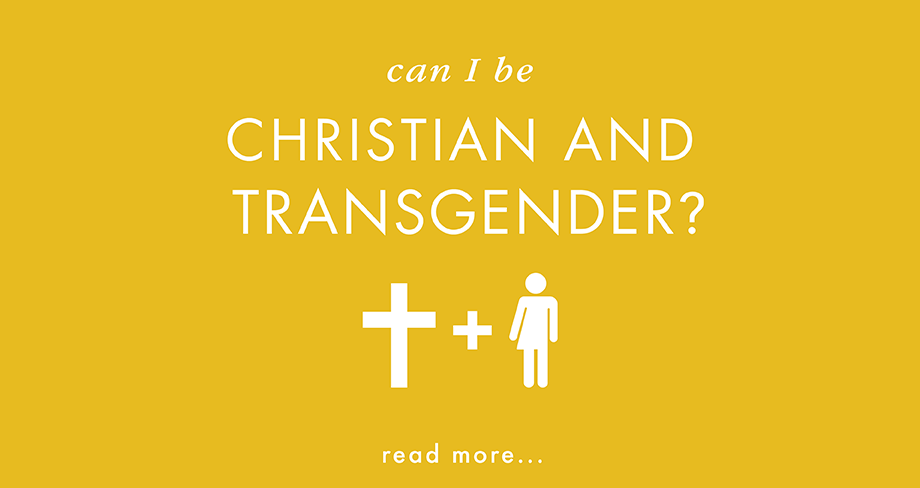
Paul’s words in 1 Corinthians 6 v 9-11 offer a helpful way to answer this question:
Do you not know that the unrighteous will not inherit the kingdom of God? Do not be deceived: neither the sexually immoral, nor idolaters, nor adulterers, nor men who practice homosexuality, nor thieves, nor the greedy, nor drunkards, nor revilers, nor swindlers will inherit the kingdom of God. And such were some of you. But you were washed, you were sanctified, you were justified in the name of the Lord Jesus Christ and by the Spirit of our God.
Paul’s words show that there are practices and lifestyles that, if left unrepented of, can prevent someone from inheriting—that is, having a place in—the kingdom of God. To live as a Christian is to accept God’s authority over our own.
Someone can embrace a transgender identity or find their identity in Christ, but not both.
Transgender identities fall into that category—they are, as I write in my book God and The Transgender Debate, not compatible with following Christ. A person’s gender identity reflects how they define what it means to be a human being. That self-definition will either correspond to God’s revelation in his word or it will not. As we have seen, God has created human beings in his own image as male and female. Our identity, therefore, is defined by God in his purposes for his creation and in his new creation in Christ. The design of humanity is purposeful and good, and part of our design is that we are men and women. To deny or overturn that distinction is to nullify God’s revelation both in nature and in Scripture. The Bible calls it suppressing the truth in unrighteousness (Romans 1 v 18).
But experiencing gendor dysphoria does not mean you are not a Christian
That doesn’t mean that someone who struggles with gender identity conflicts is not a Christian. All Christians wrestle with life in this fallen world in one way or another. Let me underline that experiencing gender dysphoria does not mean you are not a Christian.
But it does mean that a settled rejection of God’s purposes for us as male or female cannot be reconciled with following Christ. Someone can embrace a transgender identity or find their identity in Christ, but not both.
Having said that, it is possible to sin in all kinds of ways in ignorance, rather than willfully and knowingly. A new Christian might not know that they are called to honor their parents, or that lust is sinful. The key is that when they read in Scripture that obedience to God means changing in these areas, they will work to do so, with God’s help. Likewise, it would be possible to identify as transgender and also be trusting Christ as Lord because they have not yet realized the implications of the lordship of Christ in this area of their life and identity. As and when they do realize it, a Christian person would change their behavior in this area, with God’s help.
---
This is an excerpt from God and The Transgender Debate, and short booked designed to help Christians engage lovingly, thoughtfully and faithfully with one of the greatest cultural discussions of our day.